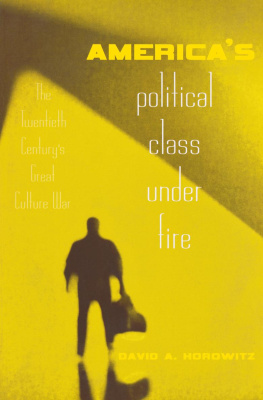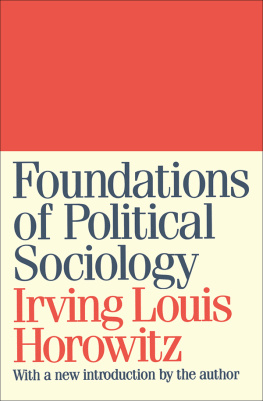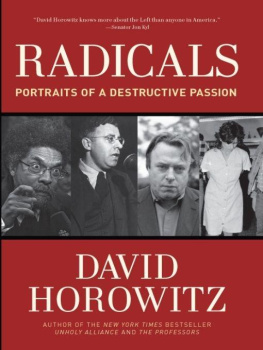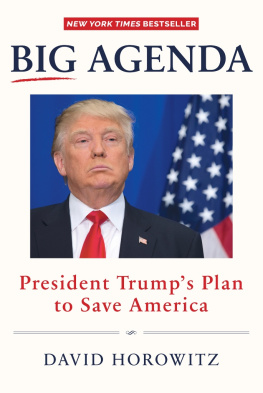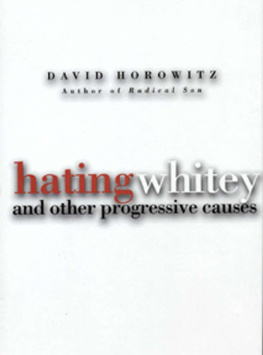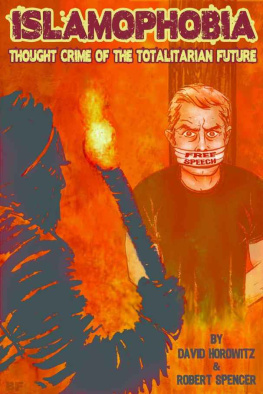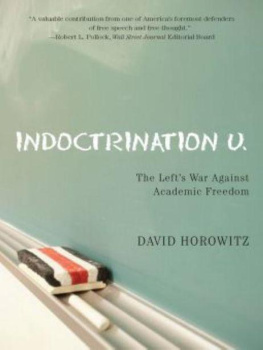Americas Political Class Under Fire
Americas Political Class Under Fire
The Twentieth Centurys Great Culture War
By David A. Horowitz
First published 2003 by
Routledge
Published 2013 by Routledge
2 Park Square, Milton Park, Abingdon, Oxon OX14 4RN
711 Third Avenue, New York, NY, 10017, USA
Routledge is an imprint of the Taylor & Francis Group, an informa business
Copyright 2003 by David A. Horowitz
All rights reserved. No part of this book may be reprinted or reproduced or utilized in any form or by any electronic, mechanical, or other means, now known or hereafter invented, including photocopying and recording, or in any information storage or retrieval system, without permission in writing from the publishers.
Library of Congress Cataloging-in-Publication Data
Horowitz, David A.
Americas Political Class Under Fire: The twentieth centurys great culture war / by David A. Horowitz.
p. cm.
Includes bibliographical references (p. ) and index.
1. Social classesUnited StatesHistory20th century. 2. Elite (Social sciences)United StatesPublic opinionHistory20th century. 3. ClassismUnited States. 4. IntellectualsUnited StatesPublic opinion. 5. Public opinionUnited StatesHistory20th century. 6. United StatesPolitics and government20th century.
I. Title.
HN90.S6 H67 2003
305.509730904dc21
2003003923
ISBN 13: 978-0-415-94690-2 (hbk)
ISBN 13: 978-0-415-94691-9 (pbk)
To the memory of Louis Filler (19111998), who introduced me to the passions of History as my first mentor at Antioch College
For strangers are risen up against me, and oppressors seek after my soul.
Psalms, 54:3
CONTENTS
The initial draft of Americas Political Class Under Fire was prepared during a full years sabbatical leave in 199899, an opportunity to which I am indebted to Portland State University and the taxpayers of Oregon.
Historians depend to an incredible degree upon the goodwill of archivists and librarians. I would like to thank the assistants at the Western History Collections at the University of Oklahoma and the Special Collections Department at the University of Virginia Library for providing photocopies of key correspondence. The staff at the Portland State University Library, especially Cyril Oberlander and the interlibrary loan team, proved to be indispensable allies, as did the patient associates of the Multnomah County Public and Reed College libraries. Relevant congressional reports and hearings transcripts were accessed through the library facilities of Portlands Northwestern School of Law.
Crucial stages of this project were supervised by David McBride, an editor of broad vision and attentive detail who encouraged me throughout the entire process while steering me clear of potential pitfalls. The thoughtful suggestions and critiques of two anonymous reviewers and Robert D. Johnston were tremendously helpful in setting the agenda for early revisions. Americas Political Class Under Fire assumed its final form under the watchful care and commitment of Routledge Publishing Director Karen Wolny, Editorial Assistant Jaclyn Bergeron, Production Editor Nicole Ellis, and Copy Editor Douglas Puchowski, to all of whom I am eternally grateful.
I have benefited immensely from the counsel and inspiration of friends and professional cohorts, including Peter N. Carroll, Justus Doenecke, Robert A. Goldberg, Michael G. Horowitz, Harry P. Jeffrey, Michael Kazin, Shawn Lay, Leonard J. Moore, David W. Noble, William G. Robbins, and Eckard Toy. Special thanks go out to my History colleagues at Portland State, particularly Bernard V. Burke, Gordon Dodds, Tim Garrison, David A. Johnson, William L. Lang, Thomas Luckett, Patricia Schechter, Friedrich Schuler, and chair Linda Walton. Gloria Myers Horowitz remains in a category of her own as special consultant and personal adviser.
None of the aforementioned individuals is responsible for any inaccuracies or mistakes of judgement contained within these pages, which are all my misfortune and none of their own.
Ku Klux Klan leader Hiram Wesley Evans referred to them as the morally suspect and culturally decadent strangers of the 1920s. Farm activist John A. Simpson pictured them as members of a powerful political trust whose policies threatened to leave the rural Depression economy in permanent ruin. Monetary inflationist, business advocate, and New Deal opponent William A. Wirt equated them with the despised inner circle of Washington and questioned their loyalty to American institutions and democratic rule. Texas representative Martin Dies, Jr. condemned them as strangers to the American way and sought to purge them from the federal government agencies of the World War II era. Senator Joseph R. McCarthy viewed them as a members of an over-educated, effete, and privileged elite whose treachery had betrayed the nations ideals. A special committee of the House of Representatives associated their involvement with tax-exempt foundations of the 1950s as symptomatic of an emerging interlock a shadowy intellectual cartel said to be exerting thought control over government, education, and politics. Alabama governor George C. Wallace saw them as the bearded beatnik bureaucrats alleged to be running 1960s Washington. And Ronald Reagan and his successors dismissed them as margin scribblers who defied the common sense of the people.
The subjects of such colorful descriptions have been portrayed in scholarly literature and in polemical works as members of a New Class-an assortment of government planners, public administrators, social service providers, policymakers, academic specialists, and knowledge professionals comprising an influential segment of the civic intelligentsia. Because such practitioners often lent their expertise and concerns to the resolution of governmental problems and cultural issues, they have been branded as the policy intellectuals, the knowledge elites, and the guardian class of modern society. Americas Political Class Under Fire: The Twentieth Centurys Great Culture War chronicles the manner in which critics viewed and censured such public actors in the United States between the Progressive Era and the centurys end. It uses the term political class to broadly describe publicly active professionals and their allies, particularly lawyers, officials of public institutions, government officers, social workers and therapists, academic consultants, university students, and selected activists and cultural ideologues.
Who, exactly, were the social guardians and members of the political class who aroused such contention and what issues were put into play by their convictions and public actions? Rexford Guy Tugwell offers a useful example. Raised in upstate New York during the 1890s, Tugwell received his academic training at the University of Pennslyvania and began teaching economics at Columbia University in 1920. A consumer-oriented theorist, he argued that lower prices were the key to prosperity and that government regulation and national planning could be harnassed to stimulate purchasing power. Tugwell believed that private sector profits induced instability because they created industrial overcapacity and encouraged excessive speculation in money markets and other securities. No socialist, he nevertheless insisted that professional economists and industrial leaders could coordinate production with demand and thereby regulate the distribution of goods in the private market.


